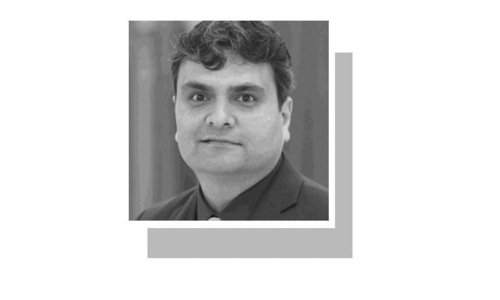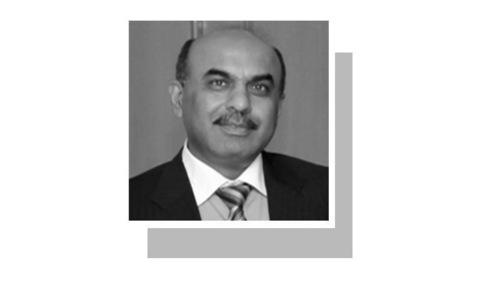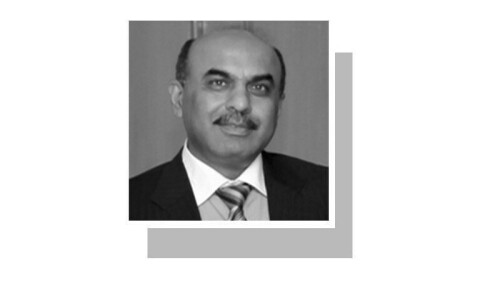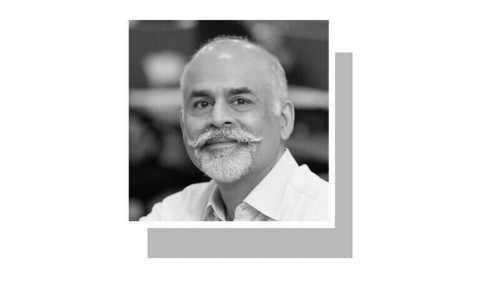LIKE many other matters in this country of ours, it is often the case that even where the best of intentions are applied, success is stymied by the inability to back up the effort or spread it around.
Consider a couple of sectors that affect the quality of people’s life most directly, and where disconnect from the full spectrum of realities is most evident.
First, the state of the education sector. On the one hand, there are schools and universities, mostly private, whose graduates join the ranks of the experts of their fields and who, not as infrequently as you might think, set records.
There are several examples, but here’s the most recent: in September, Haroon Tariq from Froebel’s International School in Islamabad broke the world record by scoring 47 ‘A’s in his O- and A-level exams.
One can privately hold whatever opinion one likes of the ultimate value of formal education, but certainly Tariq’s is a remarkable achievement. And, the record he broke had, in terms of O-levels, earlier stood at 28, which was also claimed by a Pakistani student, Zohaib Asad.
From the outside, what this says about the education sector in the country is that whatever its failings, some institutions must be doing something right to produce such students.
This potential has been recognised domestically, as evidenced by the push in recent years to improve the state of the higher education sector by establishing and allocating expertise and funds to the Higher Education Commission. Forget, for the purposes of this piece of writing, the controversy that has dogged some of the reforms proposed and/or implemented by the HEC.
Underpinning all that, nevertheless, is the fact that a significant effort is being made to help Pakistan’s worthy students achieve their potential.
From the outside, this presents a hopeful picture. But from the inside, as anyone who has a reasonable degree of familiarity with Pakistan knows, the realities are very different.
After the hash of the sector made during the 1970s by nationalisation, and then during the 1980s (and in many places, such as Khyber Pakhtunkhwa, continuing) by tinkering with the curricula, a ‘good’ education now is almost overwhelmingly a matter of being able to afford it.
There are private schools with reasonably high levels of quality which can constitute a launching pad for the student with potential. And then there is the public school system in a shambles.
There are sad, bad tales of ghost teachers (who draw salaries from the state but don’t bother to teach), under-qualified or under-educated (even if well-intentioned) teachers, and infrastructure that in many cases is far from basic (lacking toilets or libraries, for example).
The quality of education in scores of schools in the country is so poor that even literacy is not given; a couple of years ago, a report entitled Education Emergency caused a stir of alarm.
It reported that only 35pc of schoolchildren aged between six and 16 could read a story, while 50pc couldn’t read a sentence; in 2011, an estimated 30,000 school buildings were in a dangerous condition, while some 21,000 schools didn’t have a building at all.
And then, beyond these grim realities, there is the abysmal figure of how many children actually make it to school at all: the same report said that there are 26 countries poorer than Pakistan but send more children to school, while one in 10 of the world’s out-of-school children is Pakistani.
It takes no cerebral callisthenics to identify the disconnect. How are students supposed to benefit from an increasing number of higher education institutions and more avenues of funding if most of them don’t have a reasonable quality of basic schooling?
Is there much long-term benefit in focusing attention on tertiary degrees when what is being taught at the primary levels is so hopelessly inadequate? Isn’t a more holistic approach urgently required, so that the lower tiers of the education sector are systematically improved even as the higher ones are?
Another area where this disconnect is obvious is that of medicine. A number of doctors produced by this country can hold their own against the world’s brightest. Although many have left for more conducive climes, many continue to live and work here, dividing their time between private healthcare facilities from where they earn their bread and butter, and public ones where their work will go where it is most desperately needed.
The country has a fair number of highly qualified specialists, surgeons, etc. That ought to mean that the quality of medical care is generally high.
And yet, that is not the case. Aside from the funding, infrastructure and other woes of the public sector healthcare sector that have reached levels that make them quite legendary, most people that have been treated at even expensive private facilities have stories of neglect and a general lack of compassion to tell.
Across the board, there is generally a severe disconnect between the highest tiers of medical staff, such as surgeons or specialists, and the lower nursing cadres, who in practice do the bulk of looking after.
In medical schools, the stereotype that is still understood as holding is that the people who didn’t have the wherewithal to become doctors — read: financial ability — become nurses and medical attendants.
The difference between the quality of teaching being imparted at medical colleges and in nursing colleges is equally worthy of remark, as is how much is spent on their doctors in terms of salaries and the support staff.
Again, it doesn’t take a genius to realise what the gap is. But year after year, government after government, the problem remains unaddressed, the lesson unlearnt: piecemeal measures don’t work. Substantive improvement comes from rethinking systems as whole, interrelated organisms.
The writer is a member of staff.
hajrahmumtaz@gmail.com











































Dear visitor, the comments section is undergoing an overhaul and will return soon.